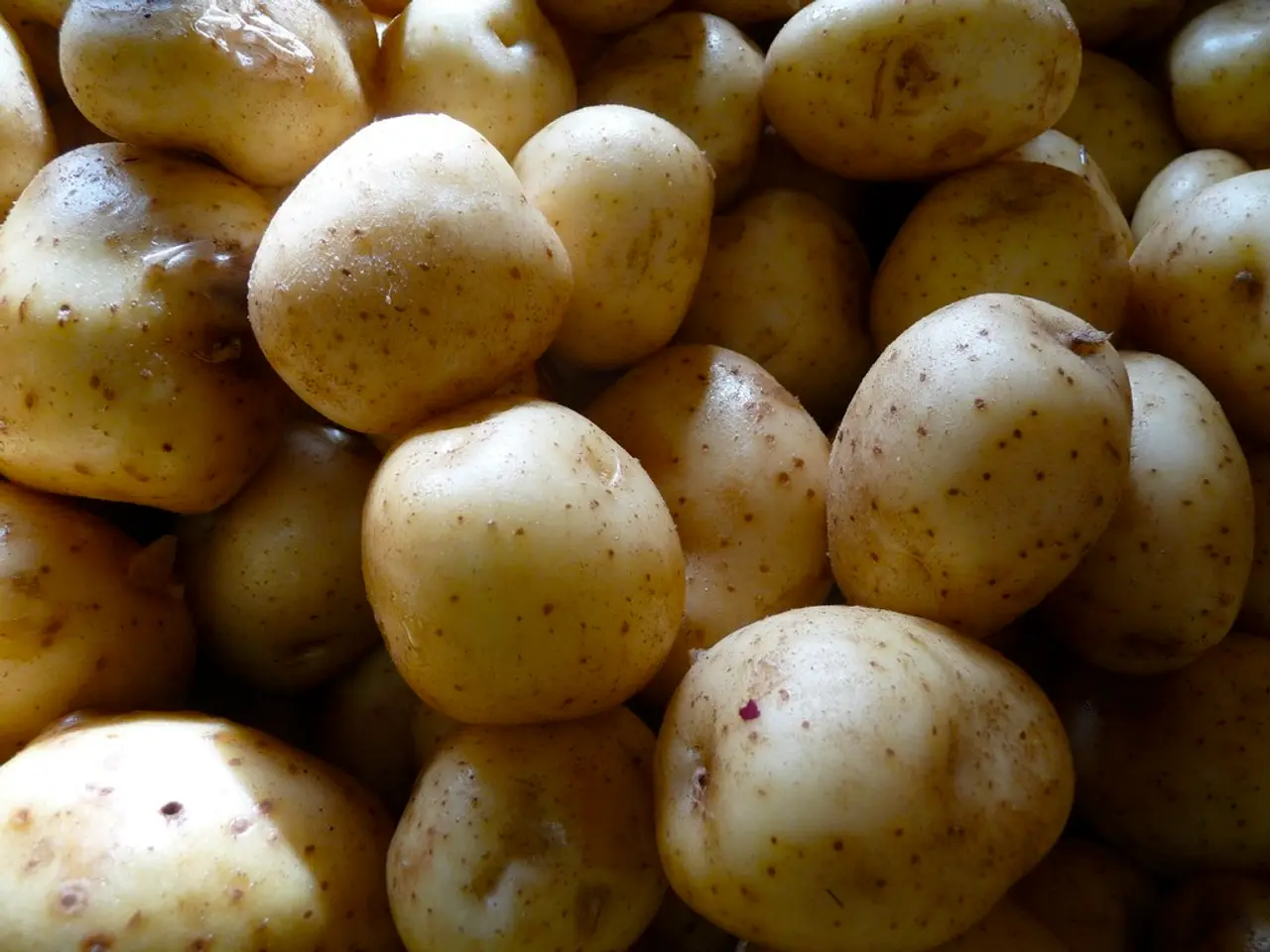Origin of Potatoes Revealed: Scientists Uncover Strange Origins
Unraveling the Genetic Origins of Potatoes: A Tomato-Potato Hybrid Story
In a groundbreaking discovery, scientists have traced the genetic origins of modern potatoes back to an ancient hybridization event between an ancestral tomato species and a tuberless plant similar to Etuberosum, approximately 8 to 9 million years ago. This hybrid, known as Petota, is the common ancestor of the potatoes we know today.
The hybridization of these two species combined genetic material from both lineages, leading to the evolution of the capacity to form tubers—the edible underground storage organs characteristic of potatoes. Key genetic insights include the identification of the SP6A gene, a master regulator of tuber initiation, which was inherited from the tomato lineage, and the IT1 gene, critical for the growth of underground stems forming tubers, which came from the Etuberosum lineage.
This rare hybridization event provided potatoes a significant evolutionary advantage by allowing them to survive harsh environments, leading to a rapid speciation and the rich diversity of potato species seen today. Modern cultivated potatoes therefore exhibit a "mosaic-like" genome reflecting this ancient genetic fusion.
The study, published in Cell, resolves a long-standing mystery about potato origins and opens new avenues for breeding more resilient potato varieties. Sanwen Huang, a genome biologist at the Agricultural Genomics Institute at Shenzhen in China, is on a mission to develop a new hybrid potato with fewer bad mutations. Huang aims to make potato seeds through human-driven hybridization to help reduce harmful mutations in potatoes.
The rise of the Andes mountain range around 10 million years ago provided conditions that were cold and dry, allowing Petota to expand into new environments in the high Andes. Huang hopes to use the new understandings of the tomato-to-potato path to potentially create healthier potato plants by using the tomato plant as a platform for new genes and reintroducing them to the potato.
Potatoes, a staple crop for millions worldwide, are in the plant genus Solanum, which has more than 1,000 species. The first potato was the result of a cross-breeding event between an ancient tomato relative and another ancient plant. Hybridization can often lead to a mix of genes that couldn't have evolved within each lineage, potentially creating new combinations. If more potatoes were grown from seeds, scientists could prune out the bad mutations and reduce the dangers from disease that clones are prone to.
Currently, there are 107 wild potato species, and potatoes remain the world's third most important staple crop. This discovery not only sheds light on the history of one of our most crucial food sources but also offers promising possibilities for the future of potato breeding and agriculture.
- The unveiling of the genetic origins of potatoes has significant implications for the future of environmental-science, particularly in the realm of sustainable-living and technology, as scientists strive to breed more resilient potato varieties.
- As a result of the study's findings, it is conceivable that data-and-cloud-computing might play a pivotal role in the development of new potato species, helping to mitigate the effects of climate-change on global-cuisines and lifestyle.
- books on natural history and environmental-science could benefit from this breakthrough, providing fascinating insights into the evolutionary journey of a plants that plays a vital role in home-and-garden, food-and-drink, and cooking.
- In the realm of entertainment, popular culture could feature more stories about the potato's illustrious history, highlighting its transformation from a humble tomato-to-potato hybrid into a staple food enjoyed by millions worldwide.
- With the understanding of the genetic origins of potatoes, there could be a renewed interest in the science behind our food sources, encouraging individuals to make informed choices about their lifestyle and diet.
- The public's awareness and appreciation of the importance of species diversity and habitats could be increased, as people are reminded of the intricate relationships between species and their environments.
- Furthermore, this study could inspire a new generation of scientists and researchers to delve deeper into the mysteries of plant genetics, potentially leading to groundbreaking discoveries in the field of genetic engineering and molecular biology.
- As we continue to explore the genetic origins of other important food crops, we may uncover similar stories of hybridization and evolution, expanding our understanding of the history of food-and-drink and its impact on our global society.
- Ultimately, the study of potato genetics offers a window into the complex, interwoven history of our environment, health, and the culinary traditions that define different cultures.





